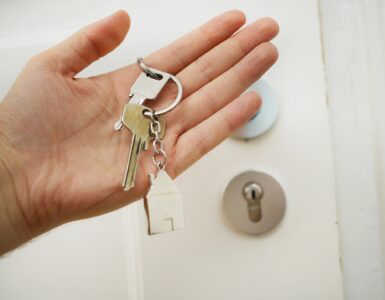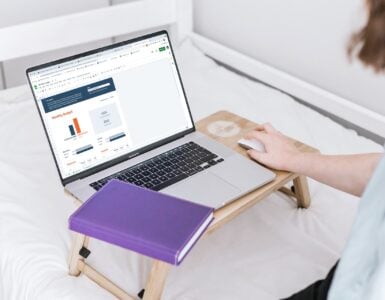Saving money for a house is a serious commitment and buying a home is likely to be the single largest financial investment most people will make throughout their entire lives.
So, it’s not something to be taken lightly.
Well thought out financial strategies now, before you commit to buying, could save you thousands of dollars, fast track your way to owning a house, and allow for a comfortable retirement.
Whether you’re looking to buy in the not too distant future or don’t plan on buying for several years, you may have already started thinking of saving for a downpayment. And, that’s a great strategy to have. Putting aside money now makes saving later, when buying becomes a more serious consideration, so much easier.
It’s not a bad time to be considering entering the housing market either, America’s interest rates are at record lows and renting has become increasingly expensive over the last 15 years. So, as a first-time home buyer, the odds are on your side, making it the perfect time for saving money for a house.
But, before you go jumping off the couch and heading straight to the nearest bank to ask for a home loan or mortgage, you’ll need to start saving for a downpayment.
A downpayment is a portion of the total sales price of your prospective home. The remainder of the money owed to the house seller is covered by a bank loan.
But, how do people save for a downpayment?
That’s 20% of the house value, right?
Well, not necessarily.
Read on to find out how people save money for a house.
How Much Money Should I Save To Buy A House?
Many Americans believe that a 20% downpayment is the norm when purchasing a house.
However, the majority of homes are bought with far less than 20%. The average downpayment amount in the U.S. in 2018 was actually much less at 5.37% of the median house price of $270,000.
You can even get loans starting with a downpayment of as little as 3%.
The thing is though, the lower the initial downpayment is the higher your ongoing costs will be over the long run. This is simply because you are more of a risk to lenders when taking on a loan without much upfront. They’ll charge this to you in the form of mortgage insurance.
Whereas if you come in with let’s say 20% or $54,000 on a $270,000 home your upfront costs are going to be far lower as you are less of a risk to lenders.
A mortgage calculator will assist you here. It will make it clearer as to how much you need to save initially and how much money you’ll spend over the lifetime of the mortgage.
Even still, the amount of money we are talking about here will make most people feel overwhelmed. The question is then, how do people save this amount of money?
How Do People Save For A Downpayment On A House?
There are a few strategies you can employ here. The first is to look at all your expenses and decide whether you can tighten your budget in certain areas. Idle gym memberships or unused subscriptions are a good place to start. Eating at home regularly rather than eating out too will often help. And, reducing food and clothing costs is another big expense that can easily be reduced.
Another way is to pay off any debt you may already have. This will eliminate any high-interest debt, like credit card debt or car loans, that will quickly eat away at any spare money you have that would be better served being saved.
You can also look at some of your big expenses in your overall budget. Could you sell your current car and reduce the loan you may have on it or find one that isn’t so expensive to run? Could you find a cheaper place to rent that is perhaps closer to your work reducing travel costs?
Or, maybe you could find a side-hustle to boost your monthly income?
Really at the end of the day, it’s all about minimizing expenses while maximizing incomings.
How Do I Start Saving For A House?
Once you’ve analyzed your spendings and reduced them as much as you can the next thing to do is to set a budget. Almost all good saving plans start with a solid budget.
You will notice soon after reducing your spendings that it will be much easier to put money away, the hard part, however, is to reduce the temptation to then go and spend these newfound savings.
A good tip, especially for those that will be tempted to spend this money, is to set up a high-interest savings account that will pay high levels of interest and will not allow for any withdrawals in an allotted timeframe you have set.
This will completely remove any temptation to touch it while rewarding you with added interest.
Allowing you to focus on your savings and reducing any urges to spend.
How Can I Save Money For A House Fast?
One way is to take advantage of the American Dream Downpayment Initiative (ADDI). The ADDI strives to lighten the burden of upfronts costs when purchasing your first home. This fund is provided to prospective first-time home buyers to make home-buying expenses more manageable.
There are eligibility requirements, but they aren’t too strict and most people will qualify. The main requirement is that your income does not exceed 80% of your county’s median income based on the number of people who live in your household.
The maximum downpayment grant is $10,000 or 6% of the purchase price of the home, whichever is greater. The average grant is around $7,500, that’s a substantial amount and will certainly help get your foot in the door. And the best part is it isn’t money you will later owe. The grant is not required to be paid back.
Another great tip and a very handy tool to use when trying to save fast for a home is to use an app like Emma. Emma is a budget manager and financial advocate that will assist you in saving for your first home.
Emma’s features will assist you to
- avoid any expensive overdrafts
- manage all your funds in the one spot
- track your expenses
- set a budget
- analyze your debt-to-income ratio
- assist you in paying off any debt you may have accumulated
- maintain your invaluable credit score
- find any hidden bank fees
- track any interest you are accruing
- suggest ways to save
- count down the days until your next pay check arrives
Emma believes that everyone should have the ability to save and own their own house. She has your back, helps the saving process, and will ensure that if there is any money in your budget to save then you’ll be the first to know about it.
Take the stress out of saving and let Emma do the heavy lifting.
Emma is available for download on both the App Store and Google Play Store.







Add comment